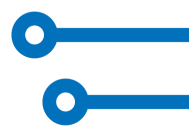Advantages of knowledge quiz
How to mix the types of questions into the interesting classroom test?

Timelines have many forms. But when we searched whether someone else than Timixi was adding extra quizzes to the timelines, we did not find any. So why do we insist on functionality that no one else offers?
When developing timelines, we always thought the most about education. And if we consider the timeline to be an excellent teaching tool, the knowledge quiz is its logical culmination. The teacher needs feedback to see if his lecture was understood. Similar knowledge validation is also beneficial for the student (can do quizzes in his/her own preparation). Last but not least, the quiz is simply a fun way to learn.
Thus, Timixi uses structured data in the system efficiently - for timeline rendering and quiz build (and, newly, for gamification). Quizzes are no time-consuming task for the teacher - a set of questions is created automatically, at the touch of a button.
For testing not to be a mere ticking game, we have formulated various types of questions with a clear differentiation of their difficulty. We can look at them briefly:
Sorting events Getting started with the easiest option - asking for the right chronology of events. In order to answer the question, a basic orientation in the topic and a certain level of concentration is enough. The question is included in two versions - the assessment of the correctness of the list (answer yes/no) and the choice of one correctly ordered list of multiple offers (answer a/b/c/d). For evaluation purposes, the list questions have a low response weight. 
Event-Date assignment Questions refer to assigning an event to a date, requiring more proficiency. However, it is still a multiple choice question, which allows a student to tolerate vague knowledge. The question may appear in three versions - deciding of the verity of the offered event-date pair (answer yes/no), selection from 4 dates for the given event (answer a/b/c/d) and selection of an event for a given date (answer a/b/c/d). Four-option questions have a mid-point weight rating.
Pairs evaluation Questions with created event-date pairs. The student chooses either a single wrong pair, or the only correct pair of the four options offered (answer a/b/c/d) - according to the version of the query. Questions are included in the evaluation with a moderate response weight.
Time distance A group of questions that require a good orientation in the topic. In a simpler version, only the validity of the submitted two event distance is checked (answer yes/no, lower weight). Choosing from a list is one level more demanding - an event that is preceding the given one (answer a/b/c/d) is searched for. High rating coefficients then have questions with the choice of the right time distance, the selection of the event with closest time to given one and the choice of the event according to the elapsed time.
our tip Try with your students all of views on timeline events through different types of quiz questions.
The evaluation of the quiz considers the correctness of the answer and its difficulty set by the point value. A percentage score is used to compare individual quizzes. Each time you start a quiz, new combinations of test questions and answers are generated to enable multiple reuse of quizzes on a given topic.
Knowledge quizzes in education
Sometimes later I will focus more on the multilateral use of learning quizzes for education. Now, let me remind you can apply quizzes in different ways: individually (students themselves check how they understand the subject or what they have to learn more), as a testing tool (teacher assigns a quiz to students who solve tests individually on computers/tablets/paper) and collaboratively (the teacher presents questions in the classroom, the students suggest and discuss answers).
The off-line quizzes have the same build and evaluation parameters. The great benefit is their usability for school subjects, for which it would be difficult always to gain access to the computer classroom. Quizzes are easy to use in every classroom on paper.
The Timixi quiz composition allows you to verify not only the encyclopedic knowledge of students, but also gives students a chance to score with some uncertainty, yet they are well skilled in the subject. Some questions are based on understanding the context or supporting logical analysis when knowledge is weaker.
Knowledge quizz is available for each timeline (with at least 10 events) from Timixi public library, as well as on timeline created free by your own.
Photo: FreePik.com
Published: 01/05/2019ver 1.7.6 en
